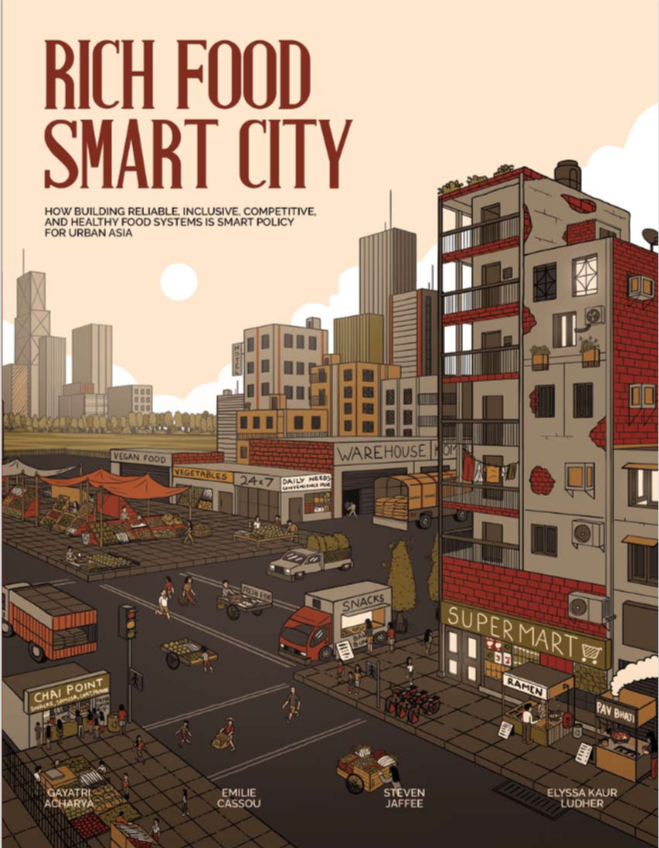World Bank-FAO Report on Asian Urban Food Systems Published

Before taking on my current assignment a few years ago, I was asked to contribute background papers to provide research, advisory and analytical services for the Food Safe and Nutrition Secure Urban Asia project of the World Bank’s Advisory Services and Analytics (ASA) in collaboration with the United Nations Food and Agriculture Organization (FAO). The report was launched in March 2021 and below is the executive summary and hyperlink. I’m honoured to have been listed as a contributor and hope this work will have positive policy influence.
Across Asia, cities are contending with a wide range of food-related issues but most lack a dedicated or coherent set of food policies. For most cities in Asia, food has been a policy and governance blind spot, while national food policy has distinctly lacked an urban perspective. Arguing that food system outcomes are central to the topmost priorities of Asian cities, RICH Food, Smart City calls for cities of all sizes to “get smart to get RICH”—that is, to pursue food policies that foster reliable, inclusive, competitive, and healthy (“RICH”) food systems, better aligned with cities’ contemporary challenges and aspirations. Based on the first systematic survey of urban food policies in 170 Asian cities in 21 countries, RICH Food, Smart City finds that only 8 percent of surveyed cities are “food-smart” and intervene in the food system in ways that are forward-looking, holistic, and inclusive. Nearly three-fourths are either at an early stage of effective engagement or fully in reactive mode, responding to problems as they emerge. Even before the COVID-19 crisis, the need for coherent multisectoral strategies and coordinated action was becoming apparent. The pandemic has now drawn attention to the essential functions of urban food supply chains and businesses and further exposed the vulnerability of urban populations to food insecurity, zoonosis, and foodborne disease. But the crisis has also shown us the potential of the food economy, through its displays of resilience coming from informal marketing channels and budding e-commerce networks and capacities. Rich Food, Smart City illustrates how Asian cities and urban leaders can take on vital food system issues, including food security, diet quality, environmental sustainability, and climate neutrality; and how building RICH food systems can help cities pursue their goals. The book will be of interest to urban planners, policy makers and leaders at the city and national levels, as well as to food system and development practitioners, and others interested in urban food policy and governance.
Citation
“Acharya, Gayatri; Cassou, Emilie; Jaffee, Steven; Ludher, Elyssa Kaur. 2021. RICH Food, Smart City : How Building Reliable, Inclusive, Competitive, and Healthy Food Systems is Smart Policy for Urban Asia. World Bank, Washington, DC. © World Bank. https://openknowledge.worldbank.org/handle/10986/35137 License: CC BY 3.0 IGO.”
URL
http://hdl.handle.net/10986/35137